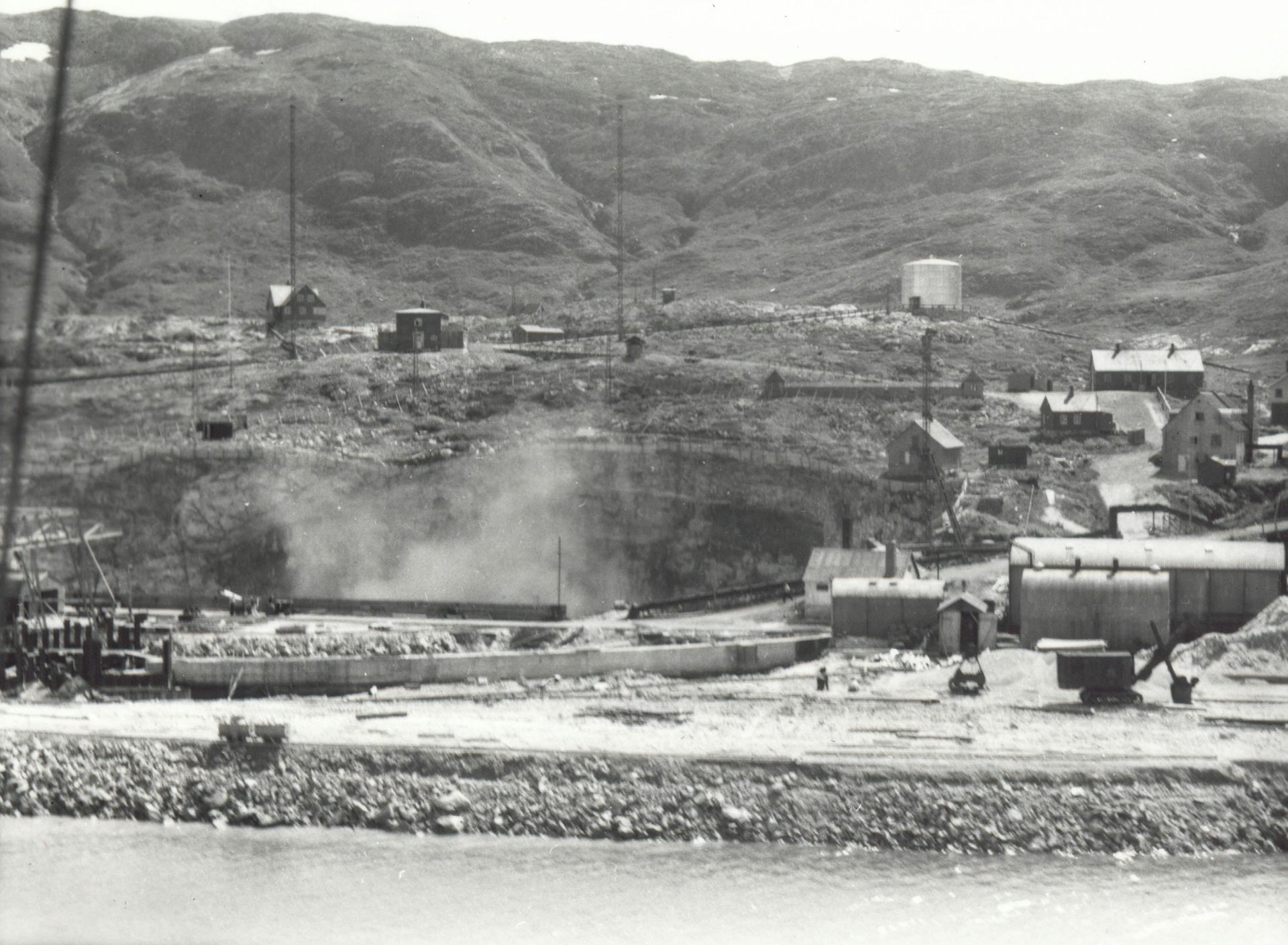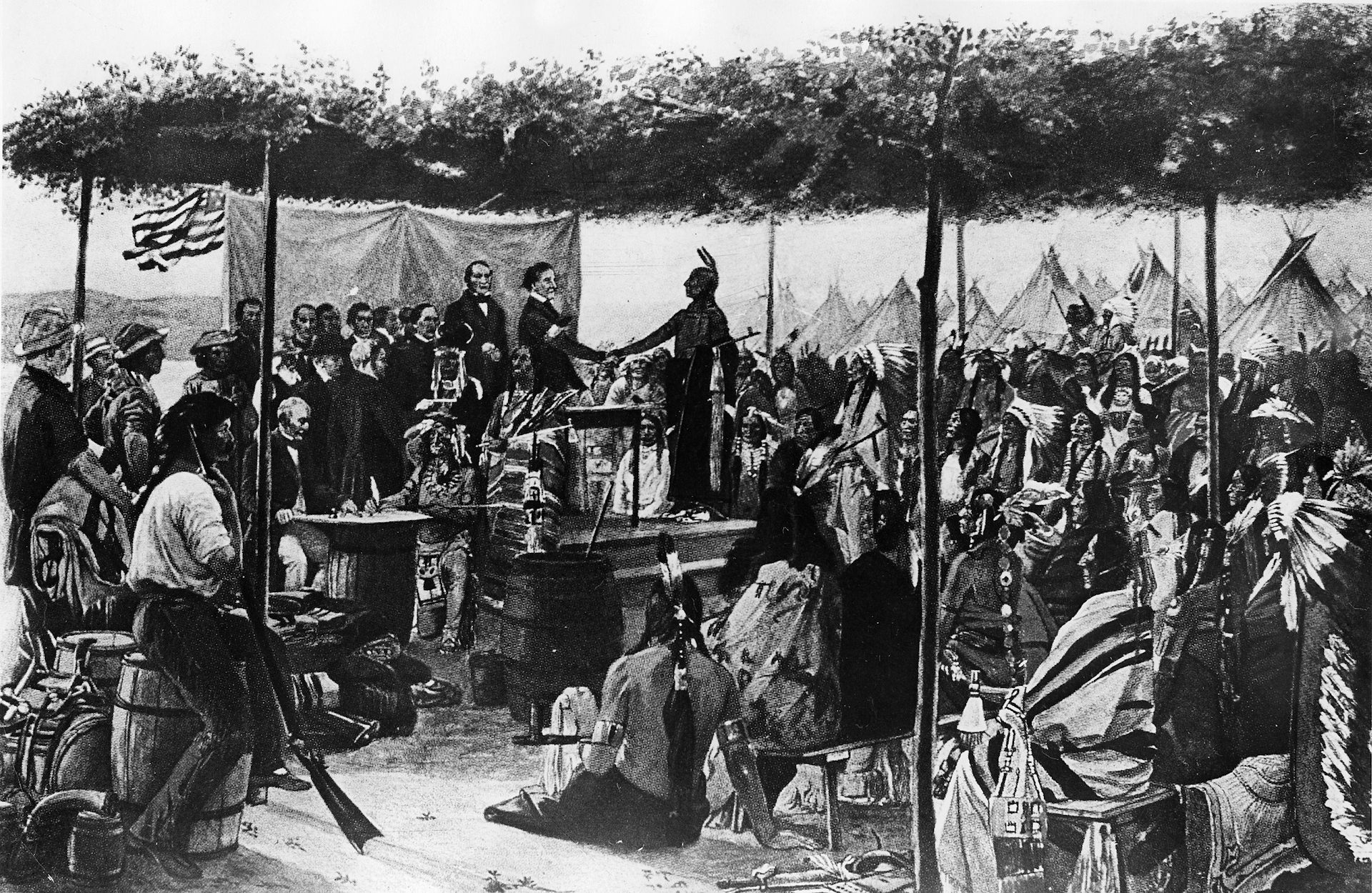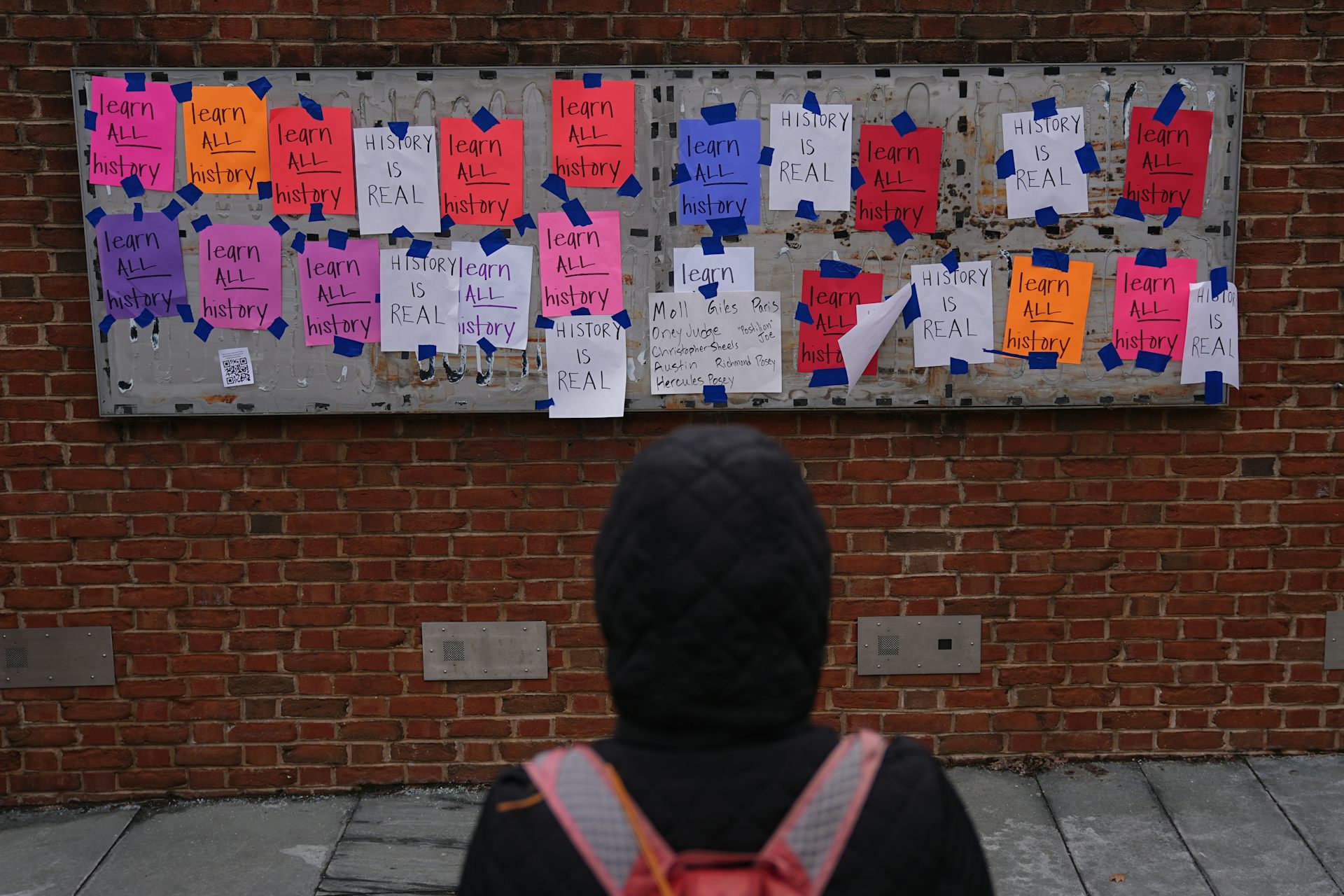William Tecumseh Sherman knew the enduring cruelty of war
A career soldier and a careful scholar of the military profession, William Tecumseh Sherman knew that wars are part of human nature, and are unavoidably cruel and harsh.
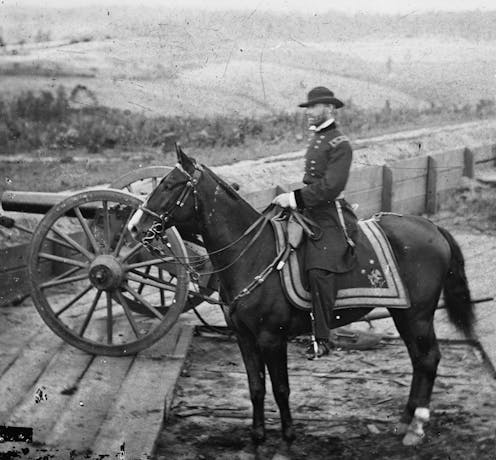
It is doubtful the tragic devastation of the Russia-Ukraine War would surprise William Sherman were he alive today. The iconic U.S. Army soldier was a student of war at home and abroad.
Sherman, who lived from 1820 to 1891, concluded that war – what the Prussian military theorist Carl von Clausewitz defined as “an act of force to compel [an] enemy to do [one’s] will” – is a fixture of human nature.
“Neither you nor any set of men have a right to say that your labors are lost,” Sherman told graduates of the Michigan Military Academy in 1879, “for wars have been, are now, and ever will be as long as man is man.”
Sherman also understood from experience – what he regarded as “the best of all possible schools” – that “war is cruelty, and you cannot refine it.”
In December 1860, Sherman served as superintendent of the Louisiana State Seminary of Learning, now Louisiana State University. After numerous professional setbacks in civilian life, Sherman had found his vocation: instructing cadets in the military art. Reared by foster parents, Sherman was also preparing a home of his own for his wife and children, whom he hoped to move from Ohio to Louisiana.
But war came when southern states seceded from the Union and when insurrectionists shelled Fort Sumter in April 1861.
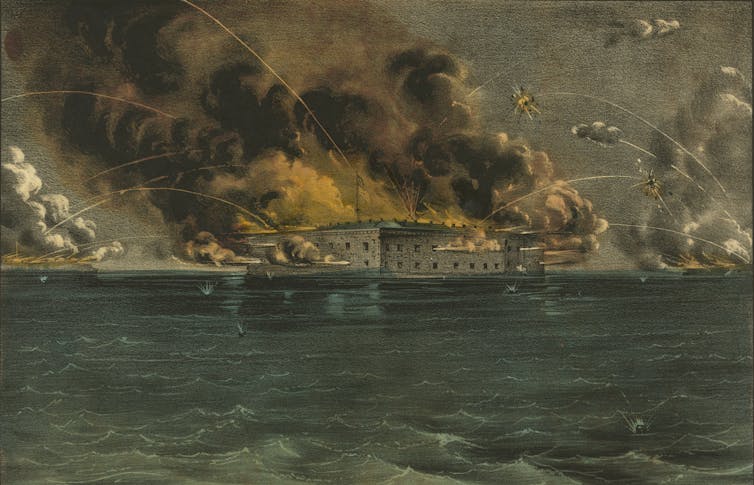
Civil War
At the outbreak of the Civil War, Sherman re-entered the U.S. Army as a colonel of infantry. He secured command of a brigade in the field, and led his unit well at the Battle of Bull Run, despite the victory for Confederate forces. From Bull Run, Sherman rose in rank until he commanded vast Union armies on campaign.
Through it all, Sherman witnessed war’s devastation. But contrary to popular myth, he was not indifferent to it or cruel himself. When Sherman captured Atlanta in September 1864, he insisted that civilians be evacuated from the city and offered assistance. City council members protested, deploring the hardships an evacuation would entail.
In his reply to the mayor of Atlanta, Sherman noted horrific losses civilians elsewhere had endured throughout the war, many of which were suffered at the hands of Confederate soldiers and resulted from Confederate policy. He cited the hypocrisy of the council’s appeal:
“I myself have seen in Missouri, Kentucky, Tennessee and Mississippi hundreds and thousands of women and children fleeing from your armies and desperadoes, hungry and with bleeding feet. In Memphis, Vicksburg, and Mississippi we fed thousands upon thousands of the families of Rebel Soldiers left on our hands and whom we could not see starve. Now that war comes home to you, you feel very different. You deprecate its horrors, but did not feel them when you sent car-loads of soldiers and ammunition … to carry on war into Kentucky & Tennessee, & desolate the homes of hundreds & thousands of good People who only asked to live in Peace at their old homes, and under the Government of their inheritance.”
After they evacuated Atlanta’s inhabitants, Sherman’s columns marched to the sea, captured Savannah, and established a new base of operations on the eastern seaboard. The campaign became infamous in the post-war South for atrocities Sherman and his men were alleged to have committed against civilians, but claims of war crimes are exaggerated. In fact, Sherman restrained his troops from committing greater depredations.
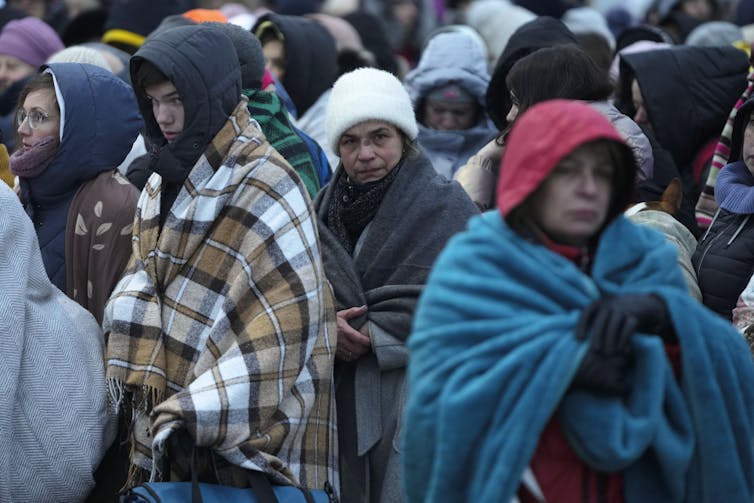
The cruelty of war
The historical omnipresence and cruel nature of war are facts even seasoned international relations experts now confront anew. The truth that “war is hell” – as Sherman probably declared to veterans in 1880 – is no less true in 2022 than it was in 1864.
Newfangled concepts of “hybrid,” “gray-zone” and other theories of contemporary warfare – in which lethal violence is less pronounced – are proving flawed in theory and in fact. War on the ground still devastates troops, civilians and homes, and determines the destinies of nations. None feel these realities more severely than the Ukrainians, whose homes, hospitals, cities and villages Russian military forces are reducing to ashes through indiscriminate and lethal firepower.
The loss of any home was a terrible fact of war with which Sherman empathized. Writing in 1862 to his daughter, Minnie, from Memphis, Tennessee, Sherman described the cruel nature of war with poignancy: “I have been forced,” he wrote,
“To turn ‘families’ out of their houses and homes and force them to go to a strange land because of their hostility, and I have today been compelled to order soldiers to lay hands on women to force them to leave their homes to go join their husbands in hostile camps. Think of this, and how cruel men become in war when even your papa has to do such acts.”
“Pray every night,” Sherman continued, “that this war may end; not that you want me home, but that our whole people may not become robbers and murderers.” It is a prayer, one suspects, uttered by many scores of Ukrainian and Russian children.
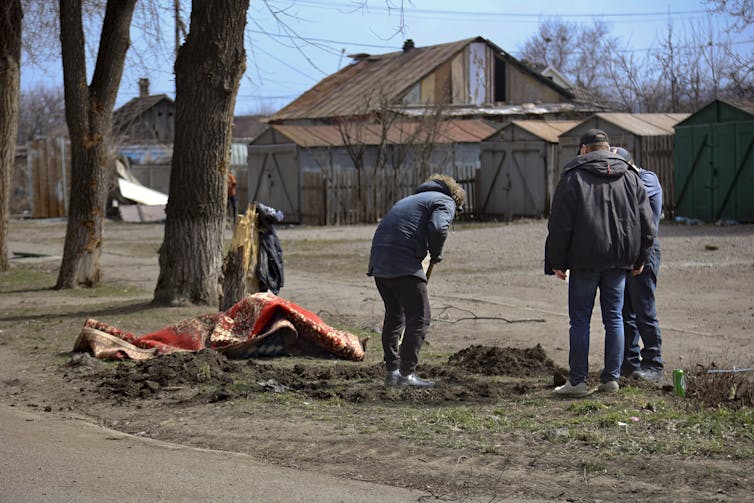
‘A more perfect peace’
Because Sherman grasped war’s inherent violence, he labored to end the Civil War swiftly. Sherman did not delight in human suffering. He did not revel in destroying enemy property. In fact, Sherman was a moralist whose use of state-sanctioned violence flowed from ethical and humanitarian concerns.
Sherman believed that it was more ethical to destroy enemy infrastructure and materiel than to kill human beings. Just as he grasped war’s cruelty, Sherman understood the need to wage war with overwhelming force, all with the purpose to end hostilities as quickly as circumstances might permit.
Deeper knowledge of William Sherman and of armed conflict will better equip leaders in the West to confront the true nature of future war. Then, when war invariably comes, Americans will be better prepared to secure the “more perfect peace” for which Sherman hoped – and which he believed was war’s true “object.”
[Understand key political developments, each week. Subscribe to The Conversation’s politics newsletter.]
The views presented in this article are those of the author and do not represent any official views or policies of the U.S. Army War College, the U.S. Army, or the Department of Defense.
Read These Next
In World War II’s dog-eat-dog struggle for resources, a Greenland mine launched a new world order
Strategic resources have been central to the American-led global system for decades, as a historian…
Revisiting the story of Clementine Barnabet, a Black woman blamed for serial murders in the Jim Crow
In 1912, a young Black woman’s supposed religious beliefs were quickly blamed to make sense of a terrifying…
Green or not, US energy future depends on Native nations
Native American lands contain 30% of the nation’s coal, 50% of its uranium and 20% of its natural…


